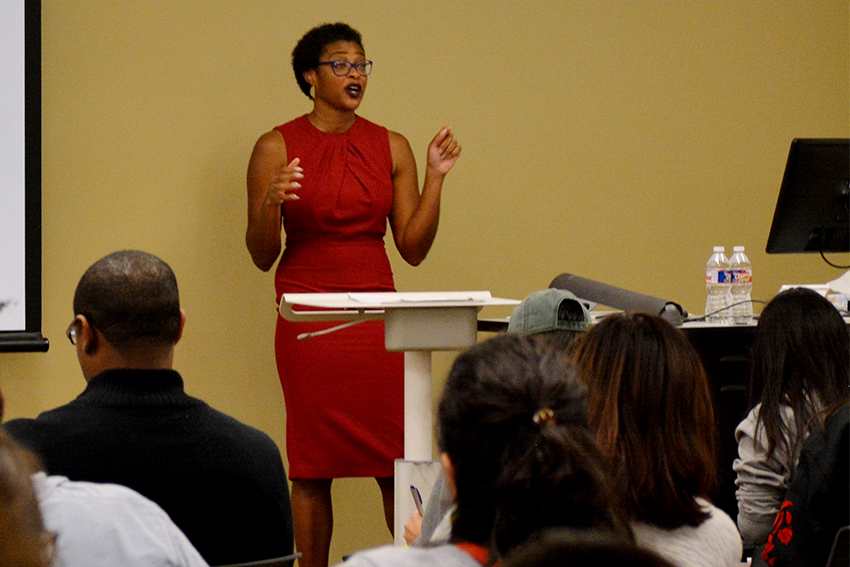Clothing does not typically come to mind when considering the civil rights movement, but author Tanisha Ford said clothing can tell stories that would otherwise be lost.
Ford, author of “Liberated Threads: Black Women, Style, and the Global Politics of Soul,” held a conversation Monday about clothing and textiles as a weapon of resistance as part of Liberal Arts Diaspora Talk series.
Ford discussed the Black Panther party’s signature leather jacket and a conversation she had with her mother who grew up in that era.
“My mother, even as a teenager, knew that to put on this jacket means you are willing to die,” Ford said. “It’s not just hearing the story, it’s also about making the connection to the textile and what leather represents for us when we tell the civil rights movement story.”
Ford said clothing creates a collective memory of experiences through what she calls “the closet,” which has the potential to transport people through time by examining articles of clothing, who wore them and why.
“If we think about dress as an act we all do every day, then that allows us to think about the power of how people are engaged in everyday forms of what I call embodied activism, even if they don’t have formal membership in movement organizations,” Ford said.
Tabias Wilson, African American diaspora studies graduate student, said the concept of the closet interested him because it is complex and applies to different groups.
“If you think about LGBT rights, what can you actually wear in this closet?” Wilson said. “What will make you a victim, but also what will make you free?”
The end of the talk focused on how screen printing on shirts has allowed even more political expression in the present day.
“We’ve moved to a moment where it (is) not about wearing the textile but it’s about wearing wokeness through political message T-shirts,” Ford said. “A new generation of activists finds different ways to convey their political message.”
Chantaneice Kitt, African American diaspora studies graduate student, said she appreciated Ford’s insight on tattoos as a permanent form of clothing.
“There’s all these really beautiful, metaphorical aspects of tattooing that make it even more significant when a black person … does it,” Kitt said. “It’s so much more significant to be able to take control and autonomy over your body in this way.”





















